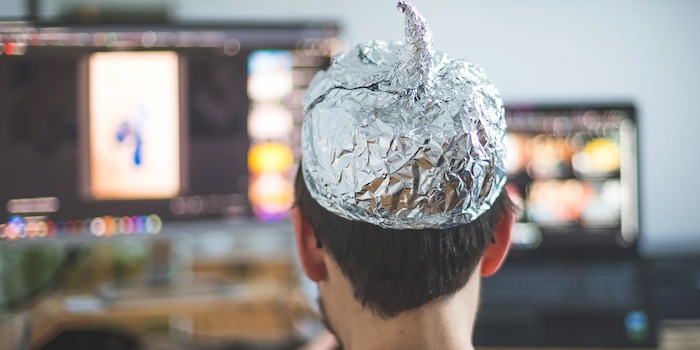
Conspiracy belief: Feels right
The existence of objective truths can be doubted for various reasons. Conspiracy belief is an indication of a certain form of truth relativism: subjectivism.
What people believe to be true and correct is partly related to how they define truth. If someone doubts the existence of objective facts, they are more susceptible to conspiracy theories and other pseudo-truths. This is what a Swedish research team concluded from an online survey of samples from the Swedish and British population. As the group reports in the "Journal of Research in Personality", conspiracy theories appear more credible when truth is declared to be a matter of emotion. Paradoxically, this also reduces tolerance for those who think differently: They are not granted their own perceived truth.
The researchers led by Julia Aspernäs from Linköping University asked more than 1,400 test subjects about their views and beliefs. What did they understand by truth? How much did they believe in conspiracy theories? Would they change their minds if there was evidence to the contrary? In addition, their analytical thinking was put to the test with logic tasks and they were asked to judge the profundity of meaningless sentences and ancient wisdom.
The answers on the topic of truth could be statistically traced back to two types of truth relativism, which often go hand in hand, but not always. The first: Truth is a matter of subjective perception. The tendency towards subjectivism can be seen, for example, in the agreement with statements such as "There is no truth, only opinions" and "If something feels right, then it is true". The other form of relativism: truth is a question of perspective, of society. An example statement: "A statement can be true in one culture and not in another."
For cultural relativism, the researchers found only weak or no associations with conspiracy beliefs, but for subjectivism they did. "Those who believe that the truth is subjective are more likely to believe in conspiracy theories and are also more likely to hold on to their convictions when the facts speak against them," the researchers report. This was also the case when the test subjects did not differ in other characteristics such as their political views or analytical skills. The subjectivists were also more inclined than the cultural relativists to recognise a deeper meaning in nonsensical sentences.
"I think that many people who relativise the concept of truth actually mean well," says Aspernäs in a press release. "But our results show that such a view can be dangerous under certain circumstances." If subjectivists define truth by whether something "feels right", this may prevent them from using analytical thinking and questioning conspiracy theories,
Spectrum of science
We are partners of Spektrum der Wissenschaft and want to make well-founded information more accessible to you. Follow Spektrum der Wissenschaft if you like the articles.
[[small:]]
Cover image: © Patrick Daxenbichler / Getty Images / iStock (detail) Examples of perceived truths can be found wherever people express their opinions. (symbolic image)
Experts from science and research report on the latest findings in their fields – competent, authentic and comprehensible.